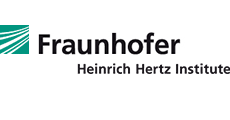
 Summary: A few remarks on and a roundup of recent articles about HEVC, which we first wrote about in spring
Summary: A few remarks on and a roundup of recent articles about HEVC, which we first wrote about in spring
ABOUT a week ago, well before the FOSS community began talking about it (apparently a hot topic over the weekend), we had spotted the latest news about HEVC, a cartel that we first heard about several months ago, well before it had a widely-recognised (for notoriety) name and a now-notorious press release (the respective Wikipedia page goes well over 2 years back, there are semi-official Web sites etc. so it's not exactly news). Some people in the FOSS/multimedia world knew what was happening, but the details were rather vague at the time. We wrote about this back in April when Monty (the Ogg guy) mentioned it by name and noted the similarities to MPEG-LA. High Efficiency Video Coding (HEVC) had been turning into a patent parasite with its own 'official' troll. New patent cartels such as HEVC basically pile up yet more fees (like royalty stacking) and some of the earlier reports said that this one cartel alone (irrespective of the rest) wants "0.5% Of Every Content Owner/Distributor’s Gross Revenue For Higher Quality Video"" [1, 2]. To quote some background: "In March, a new group named HEVC Advance announced the formation of a new patent pool [see: New HEVC Patent Pool Launches Creating Confusion & Uncertainly In The Market] with the goal of compiling over 500 patents pertaining to HEVC technology. The pool of patent holders, which is “expected” to include GE, Technicolor, Dolby, Philips, and Mitsubishi Electric has just announced their royalty rates and are going directly after content owners and CE manufacturers. HEVC Advance wants 0.5% of content owners attributable gross revenue for each HEVC Video type. To put in perspective how unjust and unfair their licensing terms are, they want 0.5% of Netflix, Apple, Facebook, Amazon and every other content owner/distributor’s revenue, as it pertains to HEVC usage. Considering that most content owners and distributors plan to convert all of their videos over time to use the new High Efficiency Video Coding compression standard, companies like Facebook, Netflix and others would have to pay over $100M a year in licensing payments. The licensing terms apply to all content services that get revenue from advertising, subscription and PPV – which pretty much equals every content owner, OTT provider, broadcaster, sports league, satellite broadcaster and cable provider you can think of."